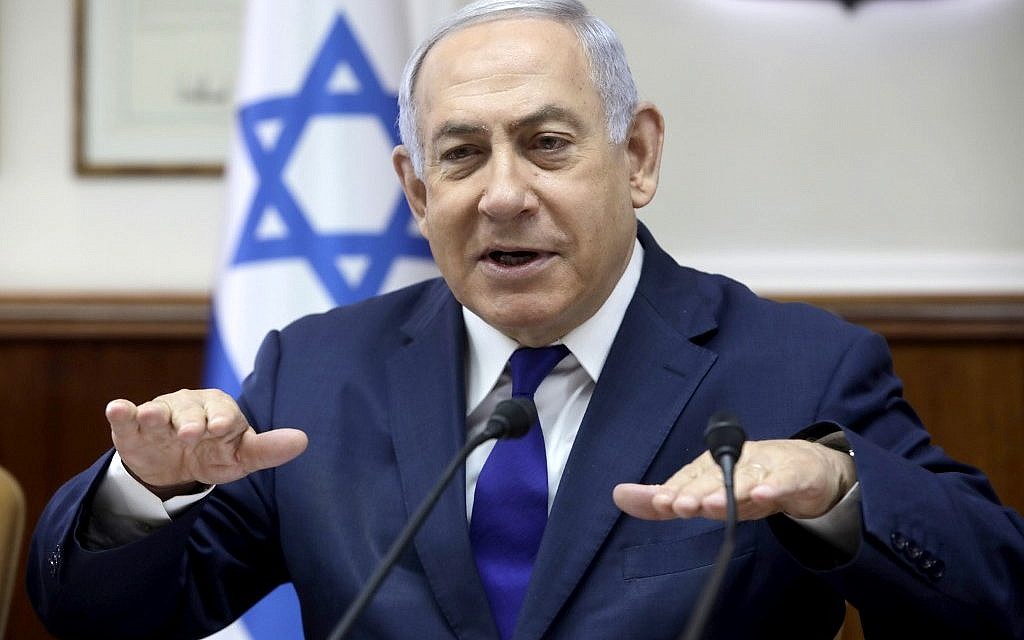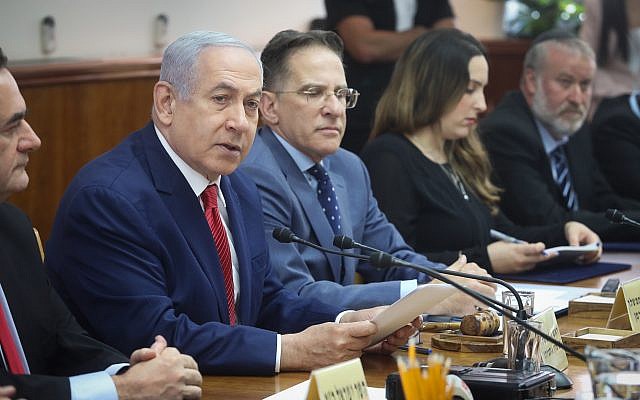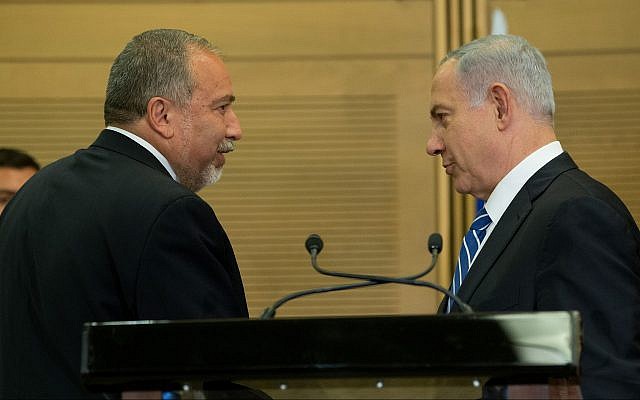This is not an issue of left or right, but rather one of electoral integrity and the proper functioning of democracy

This isn’t about left and right: Should we relinquish territory, build more homes over the pre-1967 lines, trust Mahmoud Abbas, extend Israeli law to West Bank settlements, withdraw forces, deepen our security control… We all like to think we have the correct answer when it comes to these issues, but, if we’re honest with ourselves, we recognize that they’re anything but straightforward, and that those with whom we disagree often have arguments with real merit.
No, this is about democracy, the rule of law, the integrity of our electoral process.
In the mid-1990s, after decades of complaining about our unsatisfactory election system, which has unfailingly deprived Israel of single-party government, and after years of agonizing over how to reform it and predicting how various reforms would impact it, we introduced a two-vote system: We chose our preferred party and we chose our preferred prime minister.
The carefully considered reform was expected to strengthen the larger parties and marginalize the numerous smaller ones. The experts predicted that if we wanted, say, Ehud Barak or Ariel Sharon to be prime minister, we would use our new two-vote system to vote directly for them and for their party, thus boosting their chances of building a majority coalition. Instead, the Israeli electorate did the opposite. Considering that they had made their choice of prime minister plain by directly voting for a Barak or a Sharon, many used the “luxury” of their second vote to choose a minor party, one whose core, narrow agenda was particularly close to their heart. Far from enlarging the big parties and ridding the Knesset of some of the smaller ones, the reform thus splintered the political system still further. For all the careful consideration before it was introduced, it had to be abandoned five years later.
This week, the government of Prime Minister Benjamin Netanyahu has been attempting to impose a far more radical change to our voting process, and to do so without any careful and protracted consideration. It has been seeking to fast-track legislation entitling observers from our various political parties to film inside the polling stations on election day — inside the rooms where each voter’s presence is registered as he or she votes, and where all the votes are tallied at the end of the day; to film everywhere, that is, except behind the voting screens themselves.
The planned new law is built on the success that the Likud party claimed for a wildcat version of this filming operation that it sprang on the Israeli electorate the last time we voted, on April 9. With no prior approval from the election authorities, it fitted out 1,200 paid observers with hidden cameras and dispatched them into polling stations, primarily in Arab voting areas, and happily acknowledged doing so when news of what it was up to emerged early on the day itself.
The company it employed to carry out this operation claimed afterwards that its film-the-voters enterprise had helped reduce turnout in the Arab sector to a record low — thus boosting the political right. “Thanks to the fact that our observers were placed in every Arab polling station, voter turnout dropped below 50% — the lowest seen in recent years!” the firm boasted.
Rather than acknowledging such voter suppression, Likud claimed the operation was vital to reduce voter fraud, and filed numerous allegations of such fraud, based on its election day footage, with the Central Elections Committee. The committee, in turn, found the allegations almost entirely unfounded.
Hanan Melcer, the Supreme Court justice who oversaw April’s elections and is performing the same task this time, caught by surprise by the secret camera op, ruled that day that the cameras could be used during voting hours “only in cases in which there is a fear of substantial violation of the integrity of the elections.” But Melcer did not define how such a fear could be judged — and thus essentially green-lighted the operation.
In the run-up to September 17, however, Melcer determined that party-affiliated observers would not be allowed to film at polling stations this time, adopting the advice of Attorney General Avichai Mandelblit, who questioned the legality of the idea. Instead, Melcer suggested that the Central Elections Committee could launch a pilot scheme of its own to use cameras to independently ensure an honest voting process. His ruling was a major blow to Likud, which had been planning to double its funding for the operation to NIS 2 million (some $570,000) this time.
Stymied by the Central Elections Committee, Netanyahu instead has now sought to bypass the judges by fast-tracking the “cameras bill” through parliament. This flew in the face of direct opposition by Mandelblit, Melcer and the Knesset’s legal adviser. Attending Sunday’s cabinet meeting to explain his objections directly to ministers, Mandelblit elaborated that he was not opposed in principle to the idea of cameras in polling stations, but that this was a complex and sensitive issue that went to the heart of the electoral process, and that the specifics required careful consideration rather than rushed legislation. The bill as it stood was “aberrant and flawed,” warned Mandelblit, and risked undermining “the exercise of the fundamental right to vote and also the implementation of the legal obligation to conduct free, secret and equal elections.” For his part, Melcer warned that it would play havoc with the election day process.

Unfazed, Netanyahu and all his ministers defied the legal advice and voted to advance the bill anyway. Everything is filmed nowadays, Netanyahu noted, so why object to cameras in polling stations designed to prevent electoral fraud? “Every grocery store has cameras, so voting stations can’t?” he asked rhetorically.
The ministers’ rare decision to simply ignore the advice of the country’s top legal officials prompted the former Likud minister Benny Begin to denounce his successors’ “blatant and gross disregard for the officers in charge of good governance,” and, strikingly, declare that he would no longer be voting for the party that his own father Menachem first led to power in 1977.
Netanyahu’s stance is transparently disingenuous. Likud’s April camera op focused on Arab polling stations, produced no significant evidence of fraud, and was championed by the firm that carried it out for its success in suppressing the Arab vote. This was manifestly not an effort to ensure a fair vote across the spectrum.
As Netanyahu has himself made clear, however, he has a second dark motive for focusing on his camera bid and the ostensible widespread election fraud it is purportedly designed to counter. He wants to be able to claim a pretext, if he again fails to win a majority on September 17, for arguing that the elections were stolen from him — by some of the same forces of evil that he claims are seeking to oust him for alleged corruption, notably including Israel’s opposition and its legal guardians. “It is not a coincidence that [Blue and White party leaders] Benny Gantz and [Yair] Lapid oppose cameras, because they want the election to be stolen,” he charged on Friday. “Only someone who wants to steal the election would oppose the placement of cameras.”
In Mandelblit’s state prosecution hierarchy, a third dark motive is spied: Netanyahu wants to discredit the attorney general and heighten the sense that Mandelblit, the man who is set to charge him in three criminal cases pending a hearing next month, is obsessively seeking to oust him — via an indictment and, now, by scuppering his re-election chances.
A prime minister genuinely worried about electoral fraud would have sought long ago to encourage legislation to bring the latest technology into all polling stations, including cameras if deemed necessary, with the support of as wide as possible a political consensus. And the last thing that a prime minister genuinely committed to the rule of law would do is defy the advice of Israel’s most senior legal officials, including his own government’s top adviser.
His handling of this matter, rather, echoes his efforts to rein in the Supreme Court by curtailing its powers — a cause that he only energetically embraced when it became clear that, even if he gains immunity from prosecution in the Knesset, Israel’s judges may use their authority to intervene and ensure that the prime minister, too, remains equal before the law.

On Monday, when the Knesset Regulatory Committee, headed by a Likud Netanyahu loyalist, began debating the camera bill, intending to get it rushed through parliament and believing Likud had the votes to do so, Avigdor Liberman upset the arithmetic by instructing his representatives to vote against the legislation — thwarting it for now. It was the same Liberman, of course, who prevented Netanyahu from forming a coalition after April’s elections. Netanyahu misread Liberman, and underestimated his animus, in the aftermath of the April vote. On Monday, he apparently did so again.
Denouncing the legislation that he had derailed, Liberman, the man who has served as Netanyahu’s bureau chief, foreign minister and defense minister, charged: “What Netanyahu is trying to pass is not a voter observer bill; it is an election-stealing bill.” He said his Yisrael Beytenu party supported placing cameras at polling stations to prevent voter fraud, but would only back such measures if they were introduced by the Knesset, not by an individual party. “This kind of oversight should not be managed by Netanyahu’s personal militia, who from the outset are not there to monitor voting but to interfere in the election process and alter the results,” Liberman alleged. Echoed Yisrael Beytenu MK Eli Avidar, Netanyahu wanted “to send thugs to disrupt the vote.”
Netanyahu, not for the first time, promptly denounced the hawkish, settlement-residing Liberman as a “leftist.” Though a somewhat unreliable upholder of democratic principles, what Liberman was doing was not an act of either left or right, however. He was, albeit certainly with his own narrow political interests in mind, upholding the integrity of the electoral process, one of the core principles of our democracy. And he was doing so in the face of a prime minister who seems bent on crushing such principles to try to stay in power.
As reported by The Times of Israel
